News & Highlights
Older articles
Report on Jordan's water crisis published

Prolonged and potentially destabilizing water shortages will become commonplace in Jordan by 2100, new research by an international team of researchers including the Helmholtz Centre for Environmental Research (UFZ) finds, unless the nation implements comprehensive reform, from fixing leaky pipes to desalinating seawater. Jordan’s water crisis is emblematic of challenges looming around the world as a result of climate change and rapid population growth.
Press release: Jordan’s worsening water crisis a warning for the world
Blog post by Gorelick, Klassert and Yoon: Avoiding Crisis in Jordan’s Tenuous Water Future
Video: Stanford study reveals a deepening water crisis in Jordan, youtube
Sustainable & Resilient Urban-Rural Partnerships: Conference documentation is now accessible online
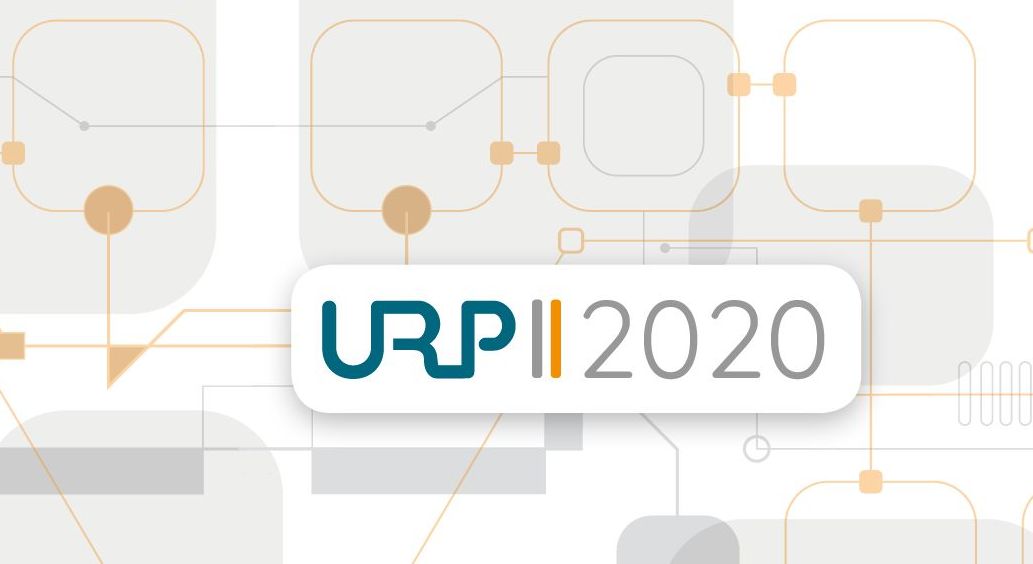
How do we want to live in the future? How will we want to reside, move and conduct business? These questions were debated during the URP2020 Conference with the title "Sustainable & Resilient Urban-Rural Partnerships". It took place on 26/27 November 2020, with over 450 participants from close to 50 different countries. Please find the documentation and a current call for two special issues here:
Coal phase-out: UFZ economists comment on the results of the "coal comission"
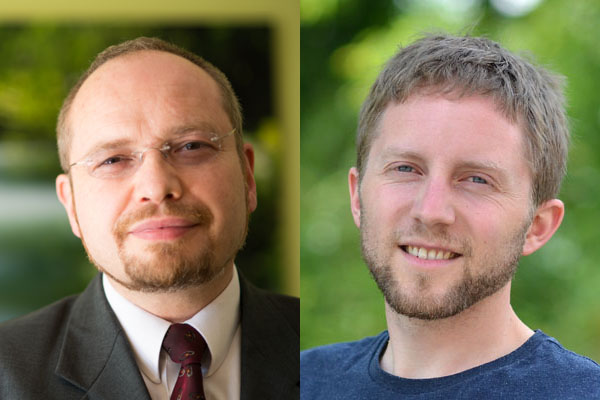
Without a phase-out of coal-fired energy generation Germany’s climate targets cannot be achieved. In January the so-called "coal commission" issued its suggestions on the matter. In their latest article in the German journal for environmental law – Zeitschrift für Umweltrecht – Prof. Dr. Erik Gawel and Dr. Sebastian Strunz comment on the commission’s results.
Report on climate technology in the transport sector published
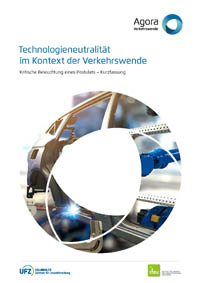
Scientists of the Helmholtz Centre for Environmental Research and the Institute for Energy and Environmental Research (ifeu) have assessed whether the promotion of new technologies in the transport sector should be technology neutral or specific. The study “Technological neutrality in the transport sector’s clean energy transition: a critical inquiry”, funded by the think tank Agora Verkehrswende, was issued in January and can now be downloaded. You will find an overview of the main findings as well as a short and a long version of the report here (in German):
Agora Verkehrswende: Mit Technologieneutralität zur Klimaneutralität?
Book published by UFZ economists: The European Dimension of Germany’s Energy Transition
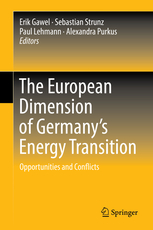
This book addresses the interactions between Germany’s energy transition and the EU’s energy policy framework. It seeks to analyze the manifold connections between the prospects of the proclaimed “Energy Union” and the future of Germany’s energy transition, and identifies relevant lessons for the transformation at the EU level that can be learned from the case of Germany, as a first-mover of transforming energy systems towards renewables. The book’s overall aim is to identify the most critical issues, in order to avoid pitfalls and capitalize on opportunities.
Gawel, E., Strunz, S., Lehmann, P., Purkus, A. (Eds.) 2019:
The European Dimension of Germany’s Energy Transition.
Opportunities and Conflicts.
Springer
Dr. Paul Lehmann appointed assistant professor
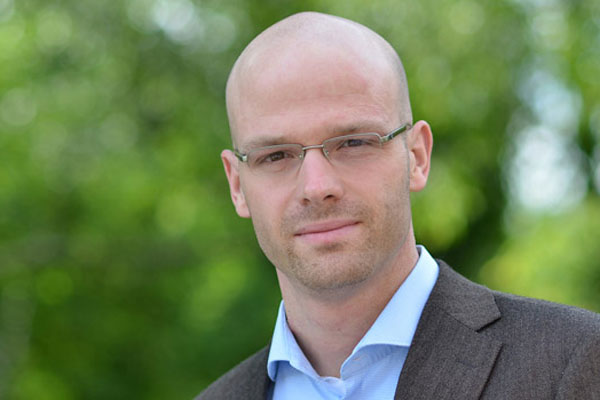
Social network for scientific exchange presented

In the context of the BMBF campaign "Research in Germany − Land of Ideas, Building the City of tomorrow", Dr. Stephan Bartke participated in mayor conferences and stakeholder meetings in Malaysia and the USA in early October 2017, including the Smart Cities Asia 2017 and the Smart Cities Week. He presented the campaign and the UFZ-coordinated social network project DE-US.net in two interviews with Astro Awani TV and CBS/TechRepublic.
Interview with Astro Awani TV
What futures for the wood-based bioeconomy?
A scenario analysis for Germany
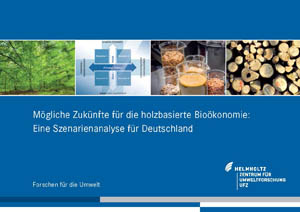
The working group "Law and Governance of the bioeconomy"of the "Excellence Cluster BioEconomy" presents the results and conclusions of its scenario analysis for the wood-based bioeconomy that are now also online available in German and in a concise booklet form under the title "Possible futures the wood-based bio-economy: A scenario analysis for Germany". Based on expert assessments future developments of the wood-based bioeconomy in Germany are outlined. This is an important contribution to the strategic development both for the "Excellence Cluster BioEconomy" and future bioeconomy policy.
Reducing micro-pollutants in water: How to finance?

Pharmaceutical residues from domestic dwellings, hospitals and agriculture are contaminating our water. The introduction of a strategy to handle micro-pollutants aims to solve this problem in Germany in the future. However, the issue of how this is to be financed has to be addressed. One option would be the introduction of a payment scheme for the use of pharmaceutical products that pose a risk to water sources and supplies. For this reason, a mechanism for charging for pharmaceutical products, which takes into account both the legal and economic issues, has been discussed in greater detail in a scientific report produced by UFZ researchers for the Federal Environmental Agency in Germany.
Urban nature – part of a sustainable development
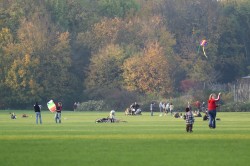
Future cities will have to deal with a variety of challenges. The third report of the project „Natural Capital Germany – TEEB DE“ shows, that urban nature can play an important role when it comes to solving complex problems. The report with the title „Ecosystem Services in Cities – Protecting Health, Increasing Quality of Living“ illustrates the range of urban ecosystems’ services and explains their importance for society. Furthermore, the authors present approaches that help to increasingly consider their values in urban development.
Can a fourth waste water treatment stage be financed by the waste water charge?
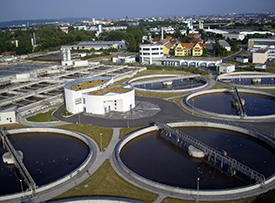
The waste water charge could be a viable way to help finance the upgrading of large waste water treatment plants to include a 'fourth treatment stage". A new study has determined that these facilities can reduce micropollutants – pharmaceuticals, for example – which are present in waterbodies.
Does Germany need capacity payments now to secure its electricity supply?
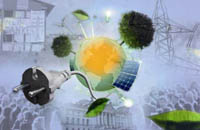
Introducing additional capacity payments to operators of coal- and gas-fired power plants is not constructive at the moment to guarantee security of power supply in Germany. This is the result of a recent study carried out by scientists from the UFZ Department of Economics and other German research institutes. Instead a mix of measures which would strengthen the electricity market, create conditions for feeding in electricity from renewable energy sources as and when required, and set incentives for the expansion of grid capacity, storage systems and demand side management.
Leading Edge Cluster BioEconomy: Work package “Bioeconomy Governance” presents first results

What socio-economic implications can be expected for the development of the biobased economy and what are possible development pathways? The working group “Bioeconomy Governance” has been working on these and further questions over the last couple of month. First results were now presented at two international conferences. The input led to increasing discussions on how to ensure prosperity when resources are constraint.
